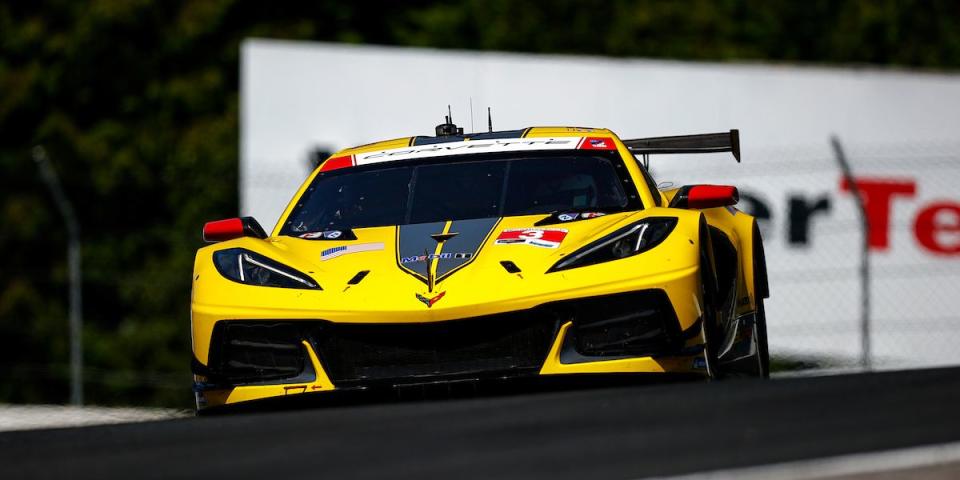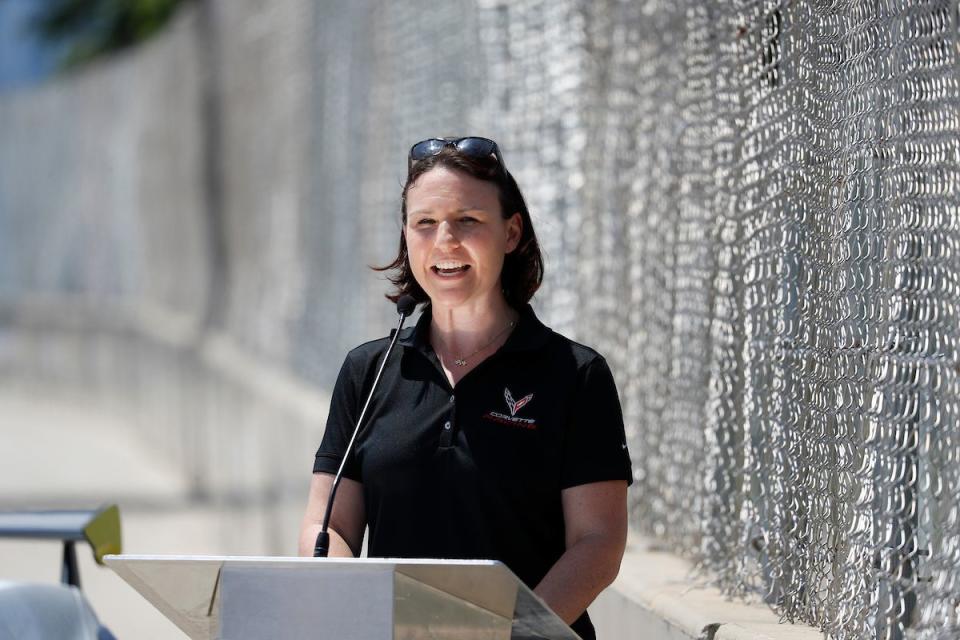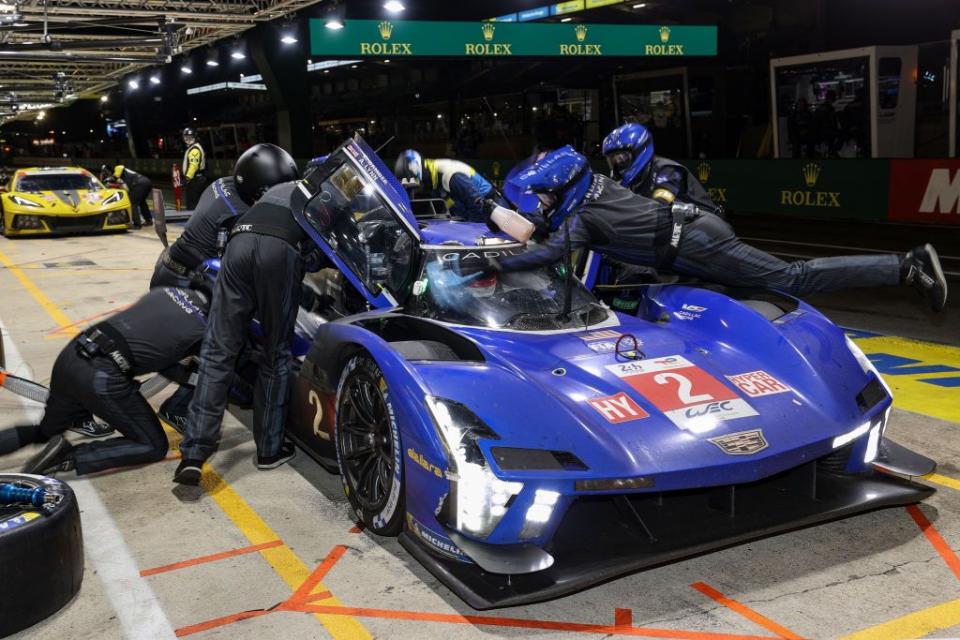GM Racing Sports Car Success Is All About Thinking Outside the Box, Working Inside It

Corvette Racing is back in action this weekend at Lime Rock Park for the IMSA WeatherTech SportsCar Championship FCP Euro Northeast Grand Prix presented by Liqui Moly.
Corvette Racing's sister team in the World Endurance Championship has already wrapped up the season championship in that series' GTE Am class with drivers Ben Keating, Nico Varrone and Nicky Catsburg.
Now, GM Sports Car Program Manager Laura Wontrop Klauser hopes to keep alive the manufacturer's bid for a GTD Pro championship in IMSA.
When it comes to playing inside the box, the factory sports car teams at General Motors are more than pretty good at it in 2023.
Cadillac finished on the podium in its return to the 24 Hours of Le Mans with its GTP entry, and earlier this month the marque's Corvette Racing team clinched the World Endurance Championship season title in the GTE AM class. There's been more than a few celebrations along the way.
Hey, it's only July.
In the IMSA WeatherTech SportsCar Championship GTD Pro class, with five races (including the July 22 race at Lime Rock) remaining, Jordan Taylor, Antonio Garcia and the No. 3 Corvette Racing Chevrolet Corvette C8.R GTD are within 109 points of the lead of the No. 14 Vasser Sullivan Lexus RC F GT3 and drivers Jack Hawksworth and Ben Barnicoat.

Corvette Racing won the last time out in IMSA at Canadian Tire Motorsport Park at Bowmanville, Ontario.
GM sports car program manager Laura Wontrop Klauser will put her teams of drivers and engineers up against anyone right now. And that's saying something when this era of sports car racing is so driven by Balance of Performance formulas intended to keep things even.
After all, if one team finds something that puts it out in front of the pack, it's usually not long before the Balance of Performance police "penalize" the runaway team with added weight, maybe a smaller fuel cell, or some other takeaway.
Klauser, in her third year at the helm of the sports car programs over at GM, looks at Balance of Performance not so much a hinderance but rather a necessary evil.
"BOP is a touchy subject," Klauser said. "It's something that is part of what we do, because without it, the budgets would just get absolutely out of control. If you can constantly be refreshing your car, re-doing it, the money pit would just get bigger and bigger and bigger, and ultimately it would price a lot of us out of being able to do this.
"So from that standpoint, BOP is a good thing to have. But it does create another aspect of understanding what you're doing. You have a homologated car that is in theory frozen for a length of time—in most cases, usually around five years. You can do a little rubbing on it or you know, work on your tuning or understanding what springs should I be running within all that, but really, you kind of have a box that you're in. But then you figure out how to play inside that box and then you are figuring out how to play with others on the track as well.

"So it's it just becomes another part of the strategy and the puzzle and understanding what you're working with.
Klauser is proud of how her teams have played the game and put that puzzle together.
"I think what we've been doing—and I think it's been important, especially in the Cadillac program—is we are focused on ourselves," Klauser said. "The only thing that we can control is us and what we're able to achieve with what we have, and that's what we're worried about.
"If you get too spun up on the outside stuff, then you forget to worry about the things that you can control and you can make better. So we're worried about that. And then the rest of it is stuff that happens in conversations and you have to have some trust that the sanctioning body is is doing their job and that's important, right? We have to let them do their job and then we have to do our job."
Klauser says there's a lot more to BOP than the sanctioning body just going team by team in the garages, taking away innovation and results of hard-working engineers—all for the sake of keeping things even on the track.
"I wish it was as black and white as you find something and they take it away," Klauser said. "But it's not like that. You're always working on making your car faster as best you can. At this point, with where all of us our at, nobody is going to find seconds, right? You're looking at maybe if I set up the car differently, maybe by optimizing it for a certain type of corner at this specific track, and sacrificing a different corner at this track, I'm faster overall. So, there's a lot of balancing there.
"It's more of just making strategy calls for what you need to do, and there's definitely several different ways to get this stuff done. It's just which one makes sense for us this weekend, with who's behind the wheel, who we're competing against, what car we're working with, and really putting all of that into play. Each race gives you a new opportunity to try something different."
This year, GM teams are making the most of those opportunities, for sure.
"We don't always get it right," Klauser said. "But for the most part, if we did get it right, how can we take what we got right and learn even more so that when we come back next year, we can continue to build off that and get even better."
And keep working on that puzzle.

 Yahoo Autos
Yahoo Autos 